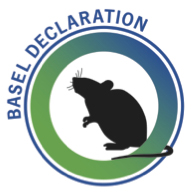Animal Research Tomorrow
Animal Research Tomorrow focuses on the evolving landscape of animal research, emphasizing advancements in ethical standards, technological innovations, and the shifting public and scientific perspectives that shape its future. This article explores the current state and future directions of animal research, highlighting the critical role it plays in medical and scientific advancements while acknowledging the growing emphasis on ethical considerations and the development of alternative research methods.
Overview[edit | edit source]
Animal research, also known as vivisection, has been a cornerstone of scientific discovery and medical breakthroughs for centuries. It involves the use of animals in experiments and research studies to understand biological processes, disease mechanisms, and to test the safety and efficacy of new treatments. Despite its contributions to science and medicine, animal research has been a subject of ethical debates, leading to significant changes in how it is conducted.
Ethical Considerations[edit | edit source]
The ethical considerations of animal research are central to the discussion on its future. The Three Rs (3Rs)—Replacement, Reduction, and Refinement—have become guiding principles for conducting animal research more ethically. Replacement refers to methods that avoid or replace the use of animals in research; Reduction aims to minimize the number of animals used; and Refinement seeks to minimize suffering and improve animal welfare.
Technological Innovations[edit | edit source]
Technological advancements are paving the way for alternatives to animal research. In vitro methods, computer modeling, and organ-on-a-chip technology offer promising avenues for reducing reliance on animal models. These innovations not only address ethical concerns but also have the potential to accelerate research and reduce costs.
Public and Scientific Perspectives[edit | edit source]
The public and scientific communities' perspectives on animal research are evolving. Increasing awareness of animal welfare and ethical considerations has led to greater scrutiny and regulatory oversight. At the same time, the scientific community acknowledges the value of animal research in understanding complex biological systems and developing treatments for diseases.
Future Directions[edit | edit source]
The future of animal research lies in balancing the ethical considerations with the scientific and medical benefits. Continued advancements in alternative research methods are essential for this balance. Moreover, enhancing transparency and public engagement can help build trust and understanding between the scientific community and the public.
Conclusion[edit | edit source]
Animal research tomorrow will likely look very different from today, shaped by ongoing ethical, technological, and societal shifts. While animal research continues to be a vital part of scientific discovery, the emphasis on ethical practices, the development of alternative methods, and the engagement with public concerns will define its trajectory.
Navigation: Wellness - Encyclopedia - Health topics - Disease Index - Drugs - World Directory - Gray's Anatomy - Keto diet - Recipes
Search WikiMD
Ad.Tired of being Overweight? Try W8MD's physician weight loss program.
Semaglutide (Ozempic / Wegovy and Tirzepatide (Mounjaro) available.
Advertise on WikiMD
WikiMD is not a substitute for professional medical advice. See full disclaimer.
Credits:Most images are courtesy of Wikimedia commons, and templates Wikipedia, licensed under CC BY SA or similar.
Contributors: Prab R. Tumpati, MD

